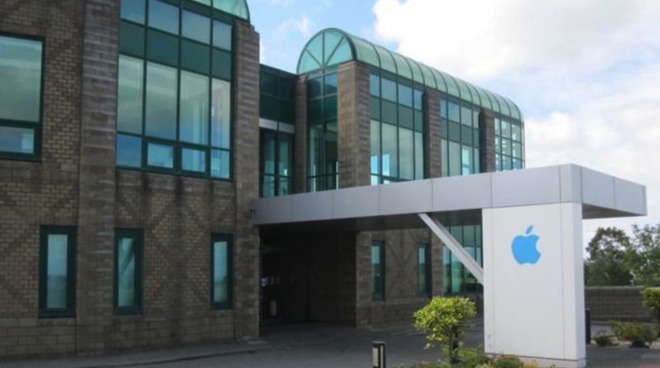EU will appeal against Apple and Ireland's $14.4 billion tax case ruling
The European Union is to appeal against a court decision which found in favor of Apple and Ireland over a $14.4 billion tax payment. The judgement in July 2020 was made by the EU's second-hightest court, and the appeal is expected to be heard in the European Court of Justice.

Apple's Ireland headquarters
The case concerns the allegation that the Irish government allowed Apple an unfair tax arrangement. Originally, the European Commission ordered Apple to pay $14.4 billion in back taxes, which it has. The money, however, has been held in escrow while appeals have continued.
In the July appeal, the General Court in Luxembourg concluded that the EC "did not succeed in showing to the requisite legal standard," that Apple had unfairly benefited from Ireland's taxation laws.
Now, according to the Financial Times, the EC intends to argue that the court set the bar for requisite standards "unreasonably high." As well as for this case with Apple, the EU is reportedly concerned about how the decision will hamper its future legal work.
"This case is very important because it will set a precedent for cases we want to fight going forward," an EU official told the Financial Times.
Friday September 25 is the final day that the EU remains eligible to file for an appeal. It is believed that Margrethe Vestager, executive vice-president in charge of competition policy, has been lobbying within the EU to keep the case going.
Vestager is leading the EU's drive to create new tax laws governing major technology companies, including Apple.

Apple's Ireland headquarters
The case concerns the allegation that the Irish government allowed Apple an unfair tax arrangement. Originally, the European Commission ordered Apple to pay $14.4 billion in back taxes, which it has. The money, however, has been held in escrow while appeals have continued.
In the July appeal, the General Court in Luxembourg concluded that the EC "did not succeed in showing to the requisite legal standard," that Apple had unfairly benefited from Ireland's taxation laws.
Now, according to the Financial Times, the EC intends to argue that the court set the bar for requisite standards "unreasonably high." As well as for this case with Apple, the EU is reportedly concerned about how the decision will hamper its future legal work.
"This case is very important because it will set a precedent for cases we want to fight going forward," an EU official told the Financial Times.
Friday September 25 is the final day that the EU remains eligible to file for an appeal. It is believed that Margrethe Vestager, executive vice-president in charge of competition policy, has been lobbying within the EU to keep the case going.
Vestager is leading the EU's drive to create new tax laws governing major technology companies, including Apple.

Comments
It seems to be a power difference between democratically elected governments and corporations, where the exact magnitude of this difference will heavily influence the outcome of this case.
later you run out
of other people’s money (M. Thatcher). So you are always on the hunt to find more.
I wouldn't trust her opinions on any matter, let alone financial ones.
1) Who do you think actually pays "business" taxes? How much of it passed through to you, the consumer? Shareholder? A: Almost 100%
2) What proportion of government tax revenues do businesses taxes account for in the US? EU? A: < 5% US; < 3% EU15
back on topic: European Court of Justice sounds like Ministry of Truth.
the other benefit is that tax revenue is highly transparent. The only addition might be royalties for resource extraction and a generic import tax.
accountants and politicians would be very opposed to this idea, as it would mean their incomes and kickbacks would be reduced.